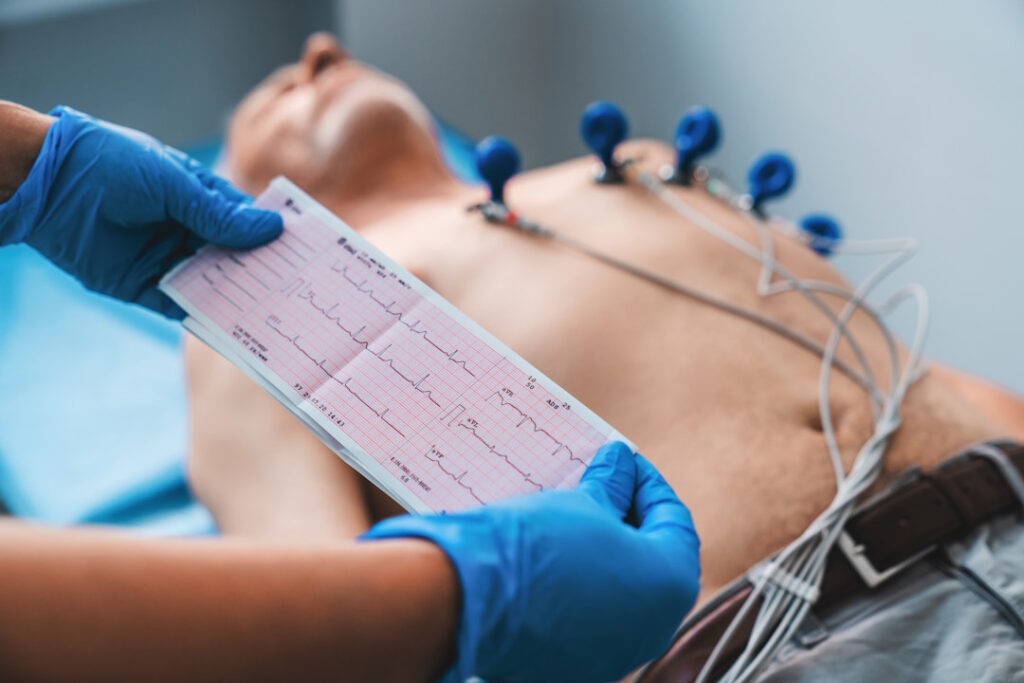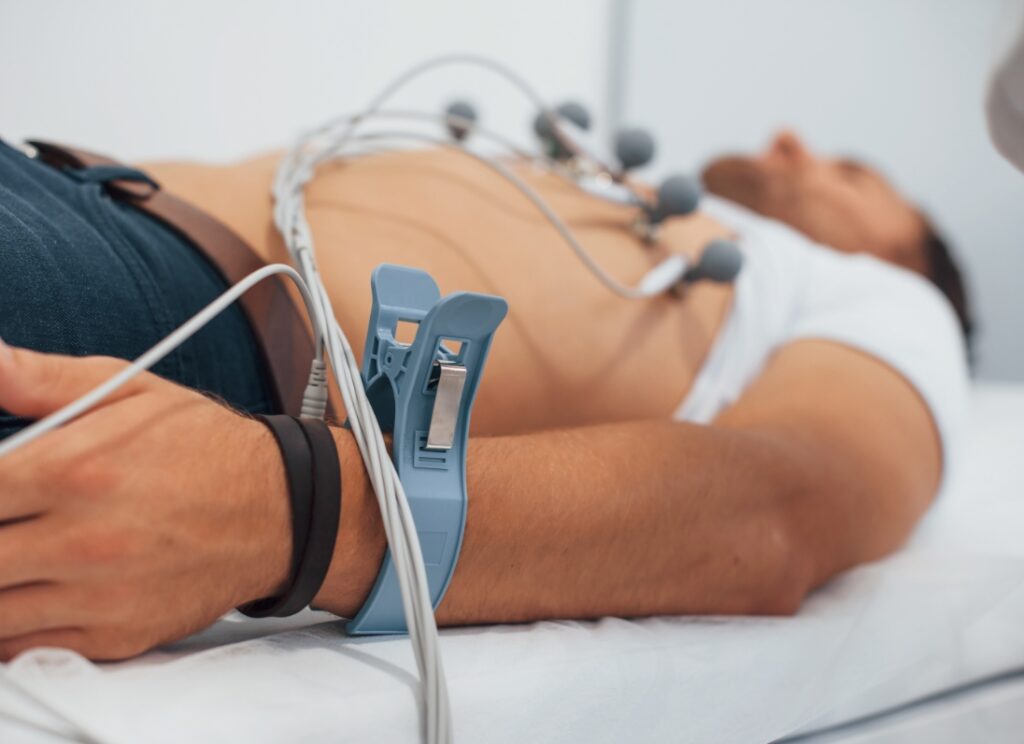Electrocardiogram (ECG)

An ECG measures the electrical activity of your heart.
During the test, you will be asked to lie down, and small adhesive electrodes will be placed on your chest. The electrodes are connected to an ECG machine, which records the electrical signals produced by your heart. The test is painless and typically takes a few minutes to complete. The results provide information about your heart’s rhythm, rate, and any potential abnormalities.
Why Is An Electrocardiogram (ECG) Performed?
An electrocardiogram (ECG) is performed as part of a routine physical examination or screening evaluation.
Some of the various heart problems that can be diagnosed by ECG include:
- Enlargement of the heart
- Congenital heart defects involving the conducting (electrical) system
- Abnormal rhythm (arrhythmia) – rapid, slow or irregular heart beats
- Damage to the heart such as when one of the heart’s arteries is blocked (coronary occlusion)
- Poor blood supply to the heart
- Abnormal position of the heart
- Heart inflammation – pericarditis or myocarditis
- Cardiac arrest during emergency room or intensive care monitoring
- Disturbances of the heart’s conducting system
- Imbalances in the blood chemicals (electrolytes) that control heart activity.


